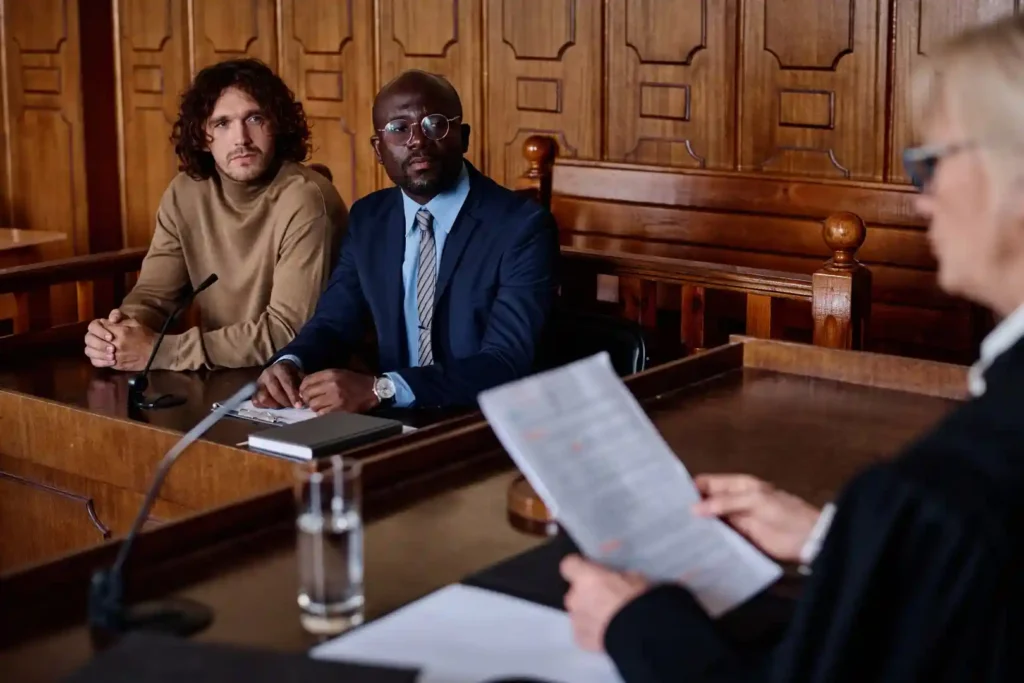1. Stay Calm and Respectful
Knowing the steps to take if arrested in Florida is essential to protecting your rights and ensuring the best possible outcome for your case. The moments following your arrest are critical. Staying calm and composed can prevent escalation. Avoid arguing, resisting arrest, or making any sudden movements that might be misinterpreted. Be polite and respectful to law enforcement officers, even if you feel the arrest is unjustified.
Tip: Your behavior during the arrest can influence how you’re treated and may even be used in court. Keeping your cool is always in your best interest.
2. Exercise Your Right to Remain Silent
You’ve likely heard the phrase, “Anything you say can and will be used against you in a court of law.” This is a crucial reminder to avoid speaking about your case without legal counsel. Politely inform the officers that you are invoking your right to remain silent.
Do say: “I am invoking my right to remain silent, and I would like to speak to my attorney.”
Don’t say: Explanations, excuses, or admissions of guilt, no matter how minor they may seem.

3. Ask for an Attorney
The Sixth Amendment of the U.S. Constitution guarantees your right to legal representation. Once you’ve been arrested, request an attorney immediately. Do not proceed with any questioning or legal proceedings without your lawyer present. An experienced criminal defense attorney will ensure your rights are protected and help you navigate the legal process.
4. Avoid Discussing Your Case with Others
It’s natural to want to talk about what happened, but discussing the details of your arrest with friends, family, or cellmates can be risky. Anything you share could potentially be used as evidence against you. Keep the details of your case private and only discuss them with your attorney.
5. Do Not Consent to Searches Without a Warrant
In most situations, law enforcement officers need a warrant to search your property, vehicle, or belongings. However, there are exceptions where they can legally search without your consent or a warrant:
- Probable Cause: If officers have a reasonable belief, based on facts and circumstances, that a crime has been committed or that evidence of a crime is present, they may conduct a search without a warrant.
- Search Incident to Arrest: If you’re lawfully arrested, officers can search your person and the area within your immediate control.
- Exigent Circumstances: In emergency situations where waiting for a warrant could result in harm, destruction of evidence, or escape, a search may proceed without a warrant.
- Plain View Doctrine: If an officer sees evidence of a crime in plain sight, they can seize it without a warrant.
- Consent: If you voluntarily agree to a search, officers do not need a warrant or probable cause.
It’s important to know your rights. If an officer asks to search your property, you can politely decline by saying, “I do not consent to a search.” If they proceed without a warrant, do not resist—your attorney can later challenge the legality of the search in court.
6. Document Everything You Remember
As soon as you’re able, write down all the details of your arrest. Include:
- The names and badge numbers of the officers involved.
- The time and location of the arrest.
- Any statements made by law enforcement.
- Witnesses who may have seen the arrest.
These details can be invaluable to your defense attorney when building your case.
7. Know Your Rights During Booking
During the booking process, you’ll be photographed and fingerprinted. You’ll also likely be asked to provide personal information. While it’s important to comply with basic procedures, remember that you’re not obligated to answer questions about the alleged crime without an attorney present.
8. Post Bail, If Possible
In many cases, you’ll have the option to post bail, allowing you to be released from custody while awaiting trial. Consult your attorney to determine the best course of action regarding bail. They can also help negotiate a reasonable amount if necessary.
9. Follow Your Attorney’s Advice
After your release, work closely with your lawyer to prepare for your case. Be honest and thorough in sharing all the facts, no matter how minor or embarrassing they may seem. Your attorney is there to protect you, not judge you.

10. Attend All Court Dates
Failing to appear in court can lead to additional charges or penalties. Mark all court dates on your calendar and arrive on time. Your attorney will guide you through each step of the legal process, but your cooperation is essential.
Why Legal Representation Matters
An arrest doesn’t define your future, but how you handle it can make all the difference. At The Law Office of Darrin E. Johnson, we’re committed to defending your rights and providing the personalized representation you deserve. If you or someone you know has been arrested in Florida, don’t face the legal system alone. Contact us today for a consultation and let us help you build a strong defense.
Disclaimer: This article is intended for informational purposes only and should not be considered official legal advice! For personalized legal guidance regarding your situation, please contact The Law Office of Darrin E. Johnson directly.
Call us at (813) 324-9311 or visit darrinjohnsonlaw.com to learn more.
